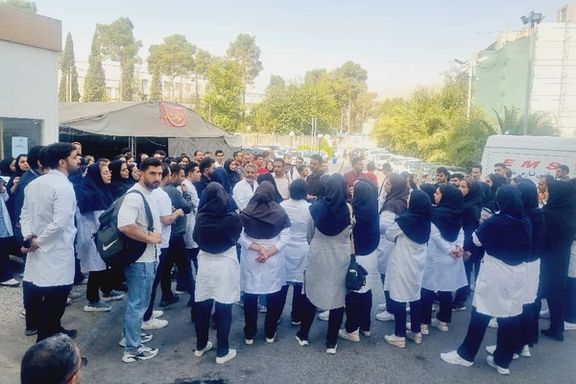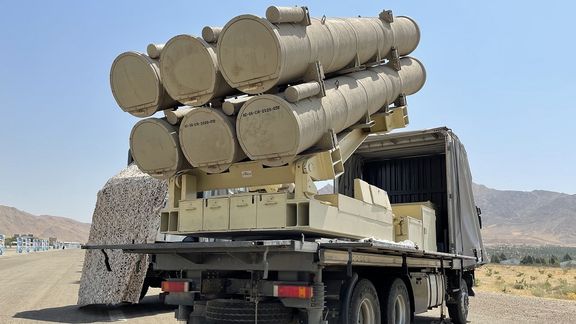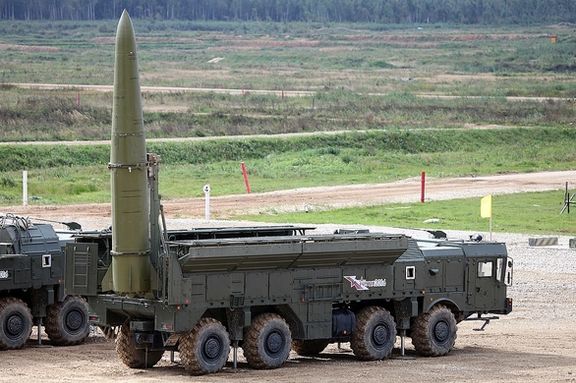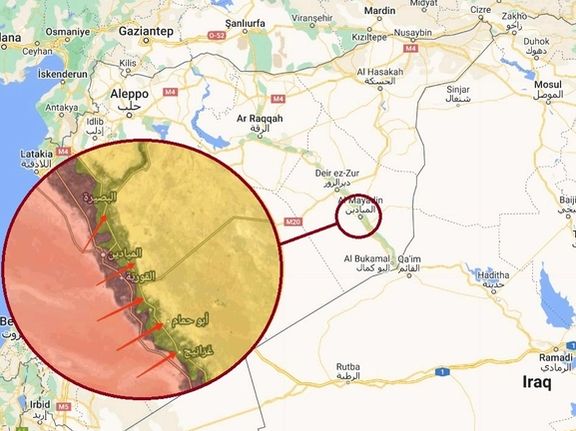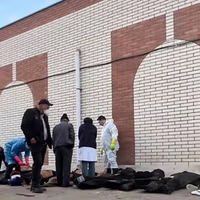Reports from workers rights group on social media indicate that nurses at several major public hospitals in Shiraz, including Namazi, Faghihi, Chamran, Amir Oncology, Zeinabieh, Ali Asghar, and Amir al-Momenin, have initiated a strike that has now spread to cities such as Abadeh, Tabriz, Zanjan, Karaj, and Fasa.
The nurses are protesting grueling working conditions, inadequate compensation for long hours, outdated nursing service tariffs, insufficient overtime pay, and the non-payment of welfare benefits. They are also decrying the Ministry of Health's lack of accountability.
In Shiraz, the strike has brought public hospitals to the brink of paralysis, with surgeries at Namazi Hospital being canceled, according to reports.
In Zanjan, demonstrators voiced their discontent with chants of "Incompetent officials, resign!" and "No to mandatory overtime!" Meanwhile, nurses at Sajad Hospital in Tabriz and Khomeini Hospital in Abadeh joined the growing movement, further intensifying the nationwide unrest.
On Tuesday, Tasnim News Agency reported on the strikes, noting that after last year's end-of-year protests by nurses, promises of a half-percent salary adjustment were made. However, with these commitments left unfulfilled, a renewed wave of protests has erupted among Shiraz public hospital nurses.
Tasnim quoted a nurse at a public hospital in Shiraz expressing frustration over the lack of follow-through on a parliamentary approved meager half-percent salary adjustment for nurses, stating, "Despite assurances of payment, funds had yet to be disbursed as of July."
The nurse noted, "Even this modest adjustment was reduced to 0.4 percent, yet no payments have been made."
Despite Iran's labor law prohibiting the formation of trade unions and imposing severe penalties for peaceful protests, nurses have continued to defy these restrictions in recent weeks amid deteriorating conditions and a deepening economic crisis.
The profession is grappling with alarming rates of job turnover and escalating migration, leading to critical shortages. Yet, the government remains resolute that these protests will be quelled.
In July, Mohammad Sharifi Moghadam, Secretary-General of the House of Nurses, reported that nurses who participated in the protests across various regions had been summoned and threatened.
Around the same time, ILNA News Agency published a report titled "From Threats and Exile to Dismissal: The Response to Protesting Nurses’ Demands," emphasizing that contract nurses in the private sector are denied the freedom to participate in protests, with those who do risk termination and dismissal.
According to ILNA, even permanent contract nurses under the Ministry of Health's jurisdiction have been summoned to disciplinary boards, punished, and subjected to rights violations and intense pressure.
In March, the Ham-Mihan newspaper detailed legal actions taken against nurses who had protested and participated in gatherings over the previous year.
The summoning, threatening, exiling, and dismissal of nurses in Iran are unfolding against the backdrop of a severe nursing shortage.
Fereydoun Moradi, a member of the Supreme Council of Nursing, revealed in July that 150 to 200 nurses are emigrating from the country each month. In August 2023, Abbas Abadi, Deputy Minister of Nursing at the Ministry of Health, announced a shortfall of approximately 100,000 nurses.
